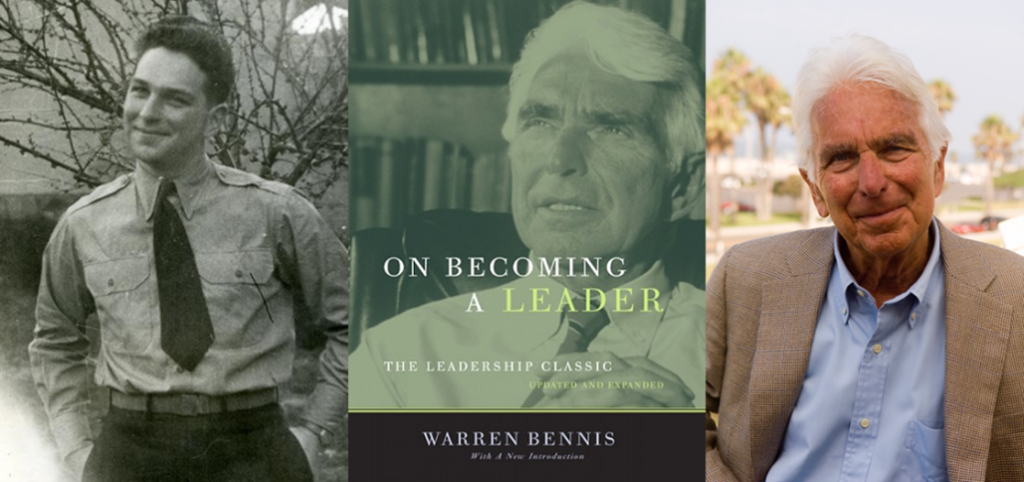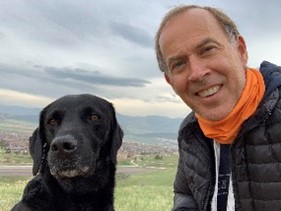These days with our full schedules and device addictions, it can be easy to neglect our inner life. We can get caught up in activities and busyness while losing touch with ourselves.
That’s a big mistake—and likely to lead to major problems down the road.
There are many different ways we can think about and experience an inner life. It can be a sense of inner guidance, an inner voice, inner wisdom, or having a rich inner world. For some, it can involve feeling a sense of our innermost being—or the feeling that “This is the real me.” It can mean being in touch with our intuition or our spirit or soul.
Different people will have different experiences with it. The question, though, is whether we experience it at all.
For many people these days, the answer is no.
Indications We’re Neglecting Our Inner Life
When we’re neglecting our inner life, we may:
- feel a disconnect between our mind, body, and soul, or an odd sense of distance from our own feelings and body
- experience frequent fatigue, anxiety, or stress, sometimes without an apparent reason
- find ourselves avoiding difficult emotional issues through coping behaviors such as overwork and chronic busyness
- feel obsessed with producing and performing while feeling divided, empty, or unworthy inside
- have trouble accessing our intuition and inner voice or gut feelings
- feel out of tune with ourselves
- sense that we’re betraying our nature or values
Often, we experience several of these downsides simultaneously. It can be disconcerting—and even debilitating. Meanwhile, we’re also missing out on the many benefits of having a rich inner life.
The Benefits of Having an Inner Life
When we have a robust inner life, it comes with many benefits. It can help us feel:
Calm
Clear
Peaceful
Patient
Still
Accepting
Nonjudgmental
Connected
Forgiving
Compassionate
Fully aware
Generous
Whole
Brave
Joyful
Reverent
Loving
With a rich inner life, we can also experience self-compassion and self-trust, feel more comfortable making tough decisions, and be more open to powerful experiences of flow. Having a full inner life can give us experiences of joy and awe.
“The magic of the inner world has no equal. It can be like a musical symphony of indescribable beauty where you become immersed in every chord and feel every note. You begin to realize your inner world is with you all the time—a core of indescribable Sacred Silence, surrounding you, interpenetrating you and others. We waste our time with small things that are at best a distraction, while the inner world waits for us to enter, waits to impart understanding and embody wisdom in action.” -Barry Bowden
How to Cultivate an Inner Life
Since it’s hard to maintain an inner life these days, we’re wise to develop practices that make it conducive for us to cultivate it.
Here are some of the top cultivation practices:
- Praying
- Meditating (including observing our thoughts and feelings without judgment and accepting them as they are, or centering our awareness in our heart or elsewhere in our body)
- Experiencing nature—even just walking and being present to the sights and sounds around us—and savoring it
- Reading that engages our heart and soul
- Listening deeply to music and experiencing it in our heart and body
- Creating things (via writing, music, art, film, dance, etc.)
- Being in community with others where we feel each other’s presence, engage in deep dialogue with trust and vulnerability, and avoid judging or trying to fix each other. (Parker Palmer makes an important point: “inner work, though it’s a deeply personal matter, is not necessarily a private matter: inner work can be helped along by community.”)
- Serving others without expecting anything in return—and feeling more whole as we do so
- Being fully present with someone in their suffering (being there with and for them) without trying to fix or save them
- Stop trying to force an inner life, and instead let it emerge, by listening to our inner voice more (as the old Quaker saying goes, “Let your life speak”) and having “a conversation with our own soul,” as Parker Palmer advises
It can help a lot to develop routines and rituals around such centering practices (e.g., a morning routine of meditation and reading, or an evening ritual of reflection and prayer).
Leaders and Their Inner Life
Cultivating an inner life isn’t just for monks and sages. It’s also for leaders, entrepreneurs, parents, and working professionals. According to James Kouzes and Barry Posner in A Leader’s Legacy, “Leadership development is first and foremost self-development. Becoming a leader begins with an exploration of the inner territory as we search to find our own authentic voice. Leaders must decide on what matters in life, before they can live a life that matters.”

“Listening to the inner voice—trusting the inner voice—
is one of the most important lessons of leadership.”
-Warren Bennis, leadership scholar
Also, an inner life isn’t just for adults: it’s also for children and teens. Having an inner life is part of the human experience, if only we learn how to tap into it.
Reflection Questions
- What’s the state of your inner life?
- What are the practices that work best for you in cultivating an inner life? Can you design more of them into your days?
- Which new centering practices will you try?
Wishing you well with it, and please let me know if I can help.
–Gregg Vanourek

Tools for You
- Traps Test (Common Traps of Living) to help you identify what’s getting in the way of your happiness and quality of life
- Quality of Life Assessment to help you discover your strongest areas and the areas that need work and then act accordingly
- Personal Values Exercise to help you clarify what’s most important to you
Related Articles
- “On Spirituality and the Good Life“
- “Are You Living a Divided Life?“
- “How to Discover Your Purpose“
- “How to Discover Your Core Values“
Postscript: Inspirations on the Inner Life
- “It is so much easier to deal with the external world, to spend our lives manipulating material and institutions and other people instead of dealing with our own souls. We like to talk about the outer world as if it were infinitely complex and demanding, but it is a cakewalk compared to the labyrinth of our inner lives!” -Parker Palmer, Let Your Life Speak
- “Don’t let the noise of others’ opinions drown out your own inner voice. And most important, have the courage to follow your heart and intuition. They somehow already know what you truly want to become. Everything else is secondary.” -Steve Jobs
- “Every time you don’t follow your inner guidance, you feel a loss of energy, loss of power, a sense of spiritual deadness…. we need to be willing to let our intuition guide us, and then be willing to follow that guidance directly and fearlessly.” -Shakti Gawain
- “Everyone has a calling, which is the small, unsettling voice from deep within our souls, an inner urge, which hounds us to live out our purpose in a certain way. A calling is a concern of the spirit.” -Dave Wondra
- “Vocation does not come from willfulness. It comes from listening. I must listen to my life and try to understand what it is truly about—quite apart from what I would like it to be about…. Before I can tell my life what I want to do with it, I must listen to my life telling me who I am. I must listen for the truths and values at the heart of my own identity.” -Parker Palmer, Let Your Life Speak
- “There is only one journey. Going inside yourself.” -Rainer Maria Rilke
- “Whenever you experience stress of any kind, look into yourself and ask, ‘In what way am I compromising my innermost values in this situation?’” -Brian Tracy
- “I once thought that I could make any decisions, whether professional or personal, by using decision trees, game theory, and optimization. Over time, I’ve changed my mind. For the big decisions in life, you need to reach a deeper region of consciousness. Making decisions then becomes not so much about ‘deciding’ as about letting an inner wisdom emerge. This approach to decision making requires time, patience, and another key ingredient: courage. It takes courage to listen to your inner wisdom. But once you hear that wisdom, making a decision becomes fairly easy.” -Brian Arthur
- “What is going on in your innermost being is worthy of your whole love.” -Rainer Maria Rilke
- “There is a basket of fresh bread on your head, and yet you go door to door asking for crusts. Knock on your inner door. No other.” -Rumi
- “The inner man wants something that the visible man doesn’t want, and we are at war with ourselves.” -Carl Jung
- “Our bodies are designed to ‘speak’ to us via our physical sensations, symptoms, intuition, cravings, moods, and emotions.” -Kem Egel, licensed therapist
- “The soul is like a wild animal—tough, resilient, savvy, self-sufficient, and yet exceedingly shy. If we want to see a wild animal, the last thing we should do is to go crashing through the woods, shouting for the creature to come out. But if we are willing to walk quietly into the woods and sit silently for an hour or two at the base of a tree, the creature we are waiting for may well emerge, and out of the corner of an eye we will catch a glimpse of the precious wildness we seek.” -Parker Palmer, from Let Your Life Speak
- “In everyone’s life, at some time, an inner fire goes out. It is then burst into flame by an encounter with another human being. We should all be thankful for those people who rekindle the inner spirit.” -Stephen R. Covey
++++++++++++++++++++++++++++++
Gregg Vanourek is a writer, teacher, TEDx speaker, and coach on personal development and leadership. He is co-author of three books, including LIFE Entrepreneurs: Ordinary People Creating Extraordinary Lives (a manifesto for living with purpose and passion) and Triple Crown Leadership: Building Excellent, Ethical, and Enduring Organizations (a winner of the International Book Awards). Check out his Crafting Your Life & Work online course, take his Traps Test (Common Traps of Living), or get his monthly newsletter. If you found value in this article, please forward it to a friend. Every little bit helps!




